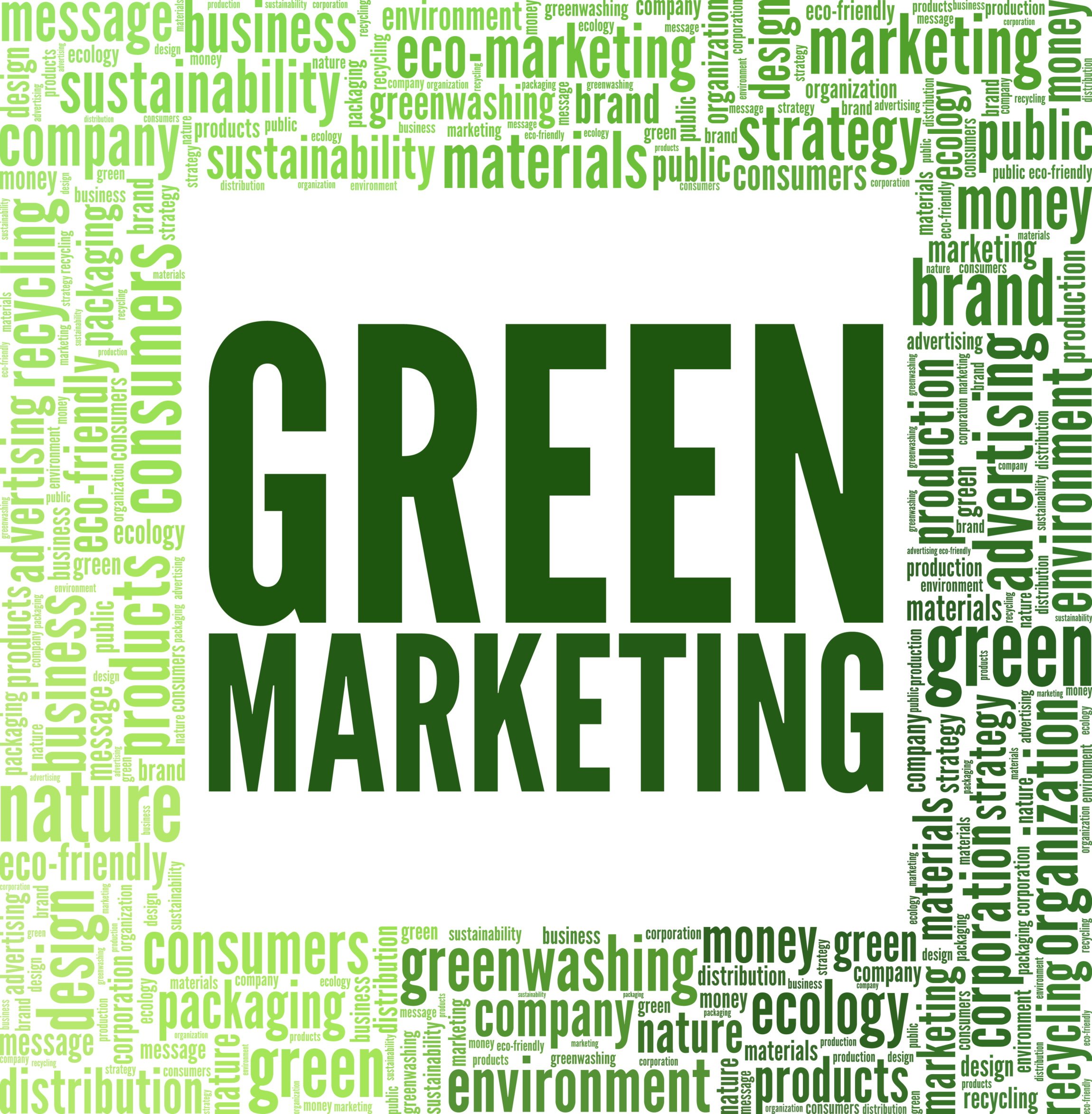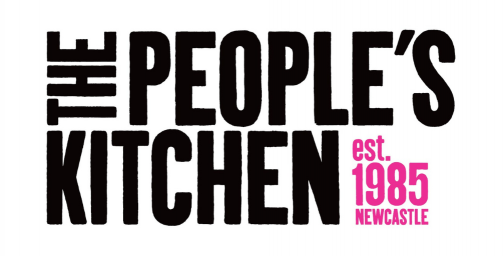
a guide to sustainable marketing and branding

Sustainable, eco-friendly, green — these terms have become increasingly popular in the minds of consumers over the last decade. Whether it’s the pollution of our oceans or the exploitation of resources and animal habitats, we’re becoming increasingly conscious of the effects that humans have on the natural world.
Concerned consumers now look to their favourite brands to put environmental concerns first, and those that don’t will lose out to competitors that do. In this guide, we’re going to explain everything you need to know about sustainable marketing and branding, so you can reassure your customers that you’re doing your bit for the planet.
- What is a sustainable brand?
- What is sustainable marketing?
- What's the history of green marketing?
- What are the benefits of green marketing?
- How can I implement sustainable marketing?
- Sustainability strategies examples
What is a sustainable brand?
A sustainable brand is one that looks beyond making profit and views other values, such as environmental impact and ethical supply chains, with equal importance.
Your brand is what connects you to your customers. It’s how they view your company and its values, and it’s how they differentiate you from your competitors. From your company name and logo to your mission statement and overall ethos, you brand is oftentimes what people are buying into, rather than simply your product. So, with eco-issues at the forefront of consumers' minds, it's no surprise that sustainable branding has taken on much greater importance.
People are no longer happy to simply buy a product and forget about it. Consumers are much more aware of what their favourite brands are doing, and they are happy to punish those that do not align with their own values. This shift has inspired many brands to become more sustainable in everything they do, from sourcing eco-friendly materials and paying fair wages to recycling materials and reducing waste. And, it's these firms that are best placed to win a loyal customer base.
What is sustainable marketing?
Of course, becoming more environmentally conscious can only get you so far, and consumers still need to be aware of your business before they will care about your green credentials. Sustainable marketing — effectively communicating the eco- and socially-friendly steps your brand is taking — is absolutely essential when you're trying to establish yourself in a new light.
As consumer demand for sustainable brands continues to increase, it’s more important than ever that companies can market their sustainability in a natural and positive way. While traditional marketing methods still have their place, it’s important to bear in mind that many customers now buy with their conscience.
International consumer goods firm Unilever conducted a study of 20,000 adults from five countries, including the UK and the USA, which looked at consumer habits in relation to sustainability. It found that a third of consumers are now choosing to buy from brands they believe are doing social or environmental good. Not only that, but 21% said they would actively choose brands if they made their sustainability credential clear on packaging and marketing materials.
Consumers want their favourite brands to care about the same things that they do, or at the very least know that the money they spend will in some way go to help environmental or social causes, rather than just looking to make a profit. Likewise, this shows how important it is for businesses to shout about the good work they are doing whenever they come into contact with a potential customer, whether through branding or marketing.
What are the 5 principles of sustainable marketing?
Sustainable marketing is underpinned by five key strategies and principles, which are as follows:- Consumer-Oriented Marketing:
This approach centres on viewing the marketing strategy through the lens of the consumer, ensuring that it aligns with and addresses their needs.
- Customer Value Marketing:
Customer value marketing involves dedicating significant efforts and resources to continually enhance the value provided in the offering. As the company delivers value to the customer, reciprocal value is generated for the company.
- Innovative Marketing:
The principle of innovative marketing emphasises a commitment to ongoing exploration for superior methods of developing products, services, and more effective marketing strategies. Neglecting innovation can result in losing customers to competitors who continually improve.
- Sense-of-Mission Marketing:
Sense-of-mission marketing guides a firm to articulate a broad mission that extends beyond the product, resonating with society. Embracing a comprehensive mission provides the company with a clear, long-term direction that aligns with the best interests of consumers and strengthens the brand.
- Societal Marketing:
Societal marketing advocates for a balanced decision-making approach, considering customer desires, company requirements, and the long-term interests of both customers and society. Forward-thinking companies anticipate potential societal issues and transform them into opportunities.
What is the difference between sustainable marketing and green marketing?
While the terms 'green' and 'sustainable' marketing are often used interchangeably, there are marked differences between the two. Specifically, green marketing is a branding strategy centred solely on organisations' environmental preservation efforts, whereas sustainable marketing encompasses initiatives addressing not only environmental concerns but also social and economic inequalities. In essence, green marketing is a subset of sustainable marketing.Green marketing, with its roots tracing back to the 1970s in response to ecological issues like pollution and deforestation, predates sustainable marketing. The strategy gained prominence in the 1980s with the growing awareness of climate change. On the other hand, sustainable marketing emerged later, prompted by a call from the United Nations for increased attention to Environmental, Social, and Governance (ESG) issues by analysts, corporations, and investors.
What are the benefits of sustainable marketing?
One of the reasons why sustainable marketing has continued to take hold is that it brings with it benefits, both to companies and consumers. While the benefits to the environment and social causes are immense, from reducing waste to lowering emissions, there are also more immediate, tangible benefits that a green approach to marketing can bring to businesses.
Makes your brand more desirable
What makes your brand different from your competitors? Chances are, they could probably answer that question in the same way that you did. So, with so many similar competitors, you need to do something truly unique in order to enrich your brand and make your products and services more desirable.
To expand your market share, you need to do something that is genuinely unique to you. Sustainable marketing and green initiatives are a great way to attract more customers — particularly millennials — to your brand. You need to offer the right incentives to keep your desirability up, and this will keep customer satisfaction high.
Increases your brand visibility
These days, many industries are cluttered with hundreds of brands, all trying to compete for a piece of the same market. And, with everyone constantly pushing out their own marketing messages, it can be hard to grab people’s attention.
A sustainable marketing strategy is the best way to show potential customers what your brand values are. Reinforce this idea over time through classic channels such as mail, newsletters, email, mobile, but also through your own green initiatives and sustainable projects.
Keeps customers coming back
It’s a well-known truism in business: it costs more to acquire a new customer than it does to keep one you already have. The key to doing this is to build deep relationships with your customers and keep them coming back. This can be done through traditional methods: great customer service, loyalty programmes, and incentives, but for sustainable marketing you need to think long-term. You want your customers to be proud of using your brand and to share it with others, and the best way to do that is to embody their ideals.
Make your products more premium
By adopting an environmental angle with your message, branding, and supply chain, you could boost your revenue through premium prices. There's plenty of data out there showing that an increasingly green-focused customer base is willing to pay more for sustainable products. According to Nielsen, 66% of global consumers are willing to pay more for sustainable goods, while that number jumps to 73% for millennials.
Opens up new revenue streams
Showing off your green credentials can be a great way to open up new revenue streams with other businesses. Many suppliers and brands are now trying to become more sustainable by working with businesses that are themselves sustainable. By being visibly green, it’s more likely that businesses will want to do business with you.
How can I implement a sustainable marketing strategy?
In order to boost your green credentials and reap the benefits of sustainable marketing, you need to create a strategy that will resonate with your customer base. How you do this will be different depending on your industry, business size, and target market, but these are some things to think about:
Decide what you stand for
Brands that focus on sustainable marketing have a greater chance of building a loyal and loving customer base. But that doesn’t mean you can just pick any old cause to get behind — you must show to your customers that you are genuinely committed to it. This will be different for every brand, and only you can decide what makes the most sense. Sit down and have a discussion about what you stand for and how your business can contribute to a sustainable world.
The most specific and tangible your sustainability goals can be, the better. You need to connect the dots for your customers and show how your products and services relate to your goals — there’s no point championing renewable energy if you don’t use it yourself. That’s not to say that you can’t do it, but your efforts may be best served in a relevant sustainable cause instead. This helps to create a more authentic story in the mind of your customers.
Start with the little things
While it’s fantastic to set up foundations and work on projects around the world, this is just the top end of the spectrum. Sustainable marketing has to start right at the bottom, and should be the foundation that the rest is built upon. Packaging and labelling is something that many businesses have to do, and it’s also an aspect that is responsible for a large part of a company’s environmental impact.
Start small and see how these basic processes can improved in your business. Consumers are more aware than ever about waste and whether what they are receiving can be readily recycled. The same goes for your branded marketing materials and freebies. Make sure that the things you are using are sustainable, whether that is recyclable plastic, sustainable cotton, or other alternatives to traditional, harmful products.
Build your image around sustainability
Once you know what you stand for and you have a narrative that makes sense, you want to build your image around it. This will help to reinforce your sustainable identity in every interaction you have with your customers. If you use non-recyclable materials in your packaging or marketing, your calls to save the environment will fall on deaf ears.
You need to think about every single process and supply chain within your business and make sure it’s in line with your sustainability goals. Once you’ve done this, you can incorporate your green credentials into your branding strategy, which includes online, in store, and even within your products themselves. Think about how you can reinforce your sustainable ideals in everything you do.
Consider donating a portion of profits
One of the easiest yet most powerful ways to show your commitment to a cause is to donate a portion of your profits to a particular cause your customers can get behind. There’s no better way to show that you put sustainability and green initiatives above profits than by doing just that. Whether it’s 5%, 10%, or 15%, showing this commitment will inspire your customers and make them feel good about using your products and services.
Position yourself as an influencer
These days, you don’t have to spend thousands on a PR company to get your message out there. Social media channels are a great way to establish yourself as a green influencer for very little cost. Communicate with your customers about the work you are doing, encourage open channels with them, and listen to what they have to say. You could also create a blog to keep them updated on the new things you are doing, and encourage them to share it to spread your message further.
Put innovation at the forefront
There’s no point just following the crowd when it comes to sustainability, because you’ll always be playing catch up. Of course, you can use them for inspiration. But you want to do something innovative to really get tongues wagging. What can you do differently to protect the planet? What can you offer that no one else is doing? What initiatives matter to you personally?
There’s really no limit to what can be done, but it needs to be realistic for your business, and it needs to be tangible. For example, every time you buy a pair of shoes from TOMS Shoes, they’ll donate a pair to someone in one of 15 countries around the world. Similarly, Better World Books gives a book to a child in need around the world every time someone purchases a new or used book.
Sustainable marketing examples
Many of the world’s biggest companies now focus their efforts on sustainable goals, and there are countless fantastic example of how they are making real positive change in the world, from the little things to the very big. Here are just a few examples:
Patagonia
A great example of a brand that overlooks earnings in favour of sustainability is American outdoor clothing brand Patagonia. From an ad in the New York Times telling people to not buy their jacket, to asking customers to fix and repair their clothing rather than buying new items, Patagonia has been doing things their own way for a long time. But their commitment doesn’t just come from their marketing, it also comes from their products, with many ranges made from recycled materials.
IKEA
When it comes to putting sustainability first, IKEA is one of the best around. Their whole operation, from the supply chain to the consumer, has been given careful consideration. Almost half of its wood is sourced for sustainable forests, while all of its cotton comes from sustainable farms. The stores themselves are equipped with solar panels, and they have plans to be completely powered by renewable by 2020 and even export the extra energy they create. Since 2014, their marketing campaigns on TV, radio, and print have focused around how the different ways they embody sustainability, and their customers are well aware of their impact.
Unilever
The European consumer goods firm Unilever is another company that has worked to make sustainability part of its corporate identity. Since 2010 the company has set targets for energy, water use, and community impact in areas where they operate. CEO Paul Polman said he would double the company’s revenue while halving its environmental impact in just 10 years, which shows that sustainability doesn’t necessarily have to come at the expense of profits. Unilever puts this focus at the fore in all their advertising and marketing, and even have a published strategy on their website.
Whether you’re already running a sustainable business or are looking at how you can do your bit for the planet, follow the tips in this guide and you’ll be able to get this message out to your customers.
If you are looking for eco-friendly and sustainable marketing products, why not check out our range of eco promotional gifts and products. You can also find out more about the power of using promotional products to market your business in our product power guide.


































